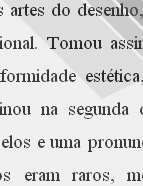

................................
Who was the first scholar to regard himself as an art historian? Perhaps Raczynski, the foreigner who gave critical and methodological substance to Portuguese early art history. Although Paulo Varela Gomes considered Cyrillo Volkmar Machado "the first Portuguese scholar with a relatively modern approach to History of Art" (in Vértice [Vertex], Lisbon, June 1988, p. 47), he also recognised the historiographical innovation brought by the Prussian diplomat. "Raczynski did not substantially change the assumptions, methodologies and objects of this history. He only added a little taste to it...which is not bad per se." (Id.. ib.) Born in Rogalin, on the outskirts of Poznan, capital of the Prussian-dominated Polish territory, Athanasius Raczynski (1788-1874) was the grandson of a marshal (and count) and the son of a brigadier, both great art lovers, who ensured he was appropriately educated. His military and diplomatic career was constructed during the unstable political circumstances of the Napoleonic campaigns. He devoted fifteen years to the administration of his estates, and in 1830 embraced diplomacy for good. He became minister plenipotentiary to Prussia and lived in Portugal from 1842 to 1845. When he arrived in Lisbon, he had just published the third and last volume of the Histoire de l'Art Moderne en Alemagne. His study of Portuguese art, by invitation of the Art and Scientific Society of Berlin, bore fruit in two works: Les Arts en Portugal (Paris, 1846, the year which also marked the beginning of the publication of Alexandre Herculano's História de Portugal [History of Portugal]) and Dictionnaire Historico-Artistique du Portugal (Paris, 1847).
His work set a new historiographical standard, praised by the Revista Académica [Academic Journal] (Coimbra, vol. I, 1845-48, no. 23, p. 360) in the following terms: "he discusses controversial points, investigates news, and writes with all the erudition and wisdom of a German. We find this better than the French levity; we would rather have pages laden with style and quotations but penned by someone who has a first-hand account, and has sought the truth of things, to the detriment of brilliant forms." An experienced scholar, combining an artist's taste with critical independence and methodological rigour, he felt at ease both in analysing and appraising the art of his time. He was therefore able to reassess fanciful authorships and teach a lesson on good work. The relentless exercise of criticism, through which he made some enemies, allowed him to appreciate the value of Alexandre Herculano with words that to a certain extent were also befitting to him: "C'est un des hommes les plus amis de la verité que je connaisse en Portugal, d'une grande vivacité d'esprit, très érudit, écrivain d'un mérite généralement reconnu, d'une imagination ardente, plein de zèle, et infatigable." (Dictionnaire..., p. 131.)
